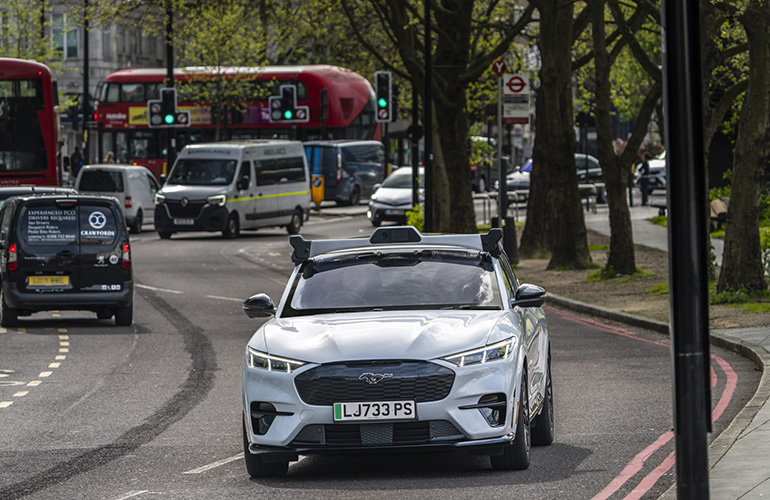|
Listen to this article |
Wayve yesterday announced it closed a $1.05 billion Series C funding round. The London-based developer of embodied artificial intelligence (AI) for autonomous driving was founded in 2017. While most autonomous vehicles (AVs) work by extensively mapping out the areas they drive in, Wayve uses deep learning techniques to allow its cars to drive anywhere. To train its software, Wayve uses hundreds of millions of data samples of real-world and simulated driving.
SoftBank Group led the round, which also included new investor NVIDIA and existing investor Microsoft.
“AI is revolutionizing mobility. Vehicles can now interpret their surroundings like humans, enabling enhanced decision-making that promises higher safety standards,” Kentaro Matsui, managing partner at SoftBank Investment Advisers, head of the New Business Office at SoftBank Group, and board member at Wayve, said. “The potential of this type of technology is transformative; it could eliminate 99% of traffic accidents. SoftBank Group is delighted to be at the forefront of this effort with Wayve, as advanced intelligence redefines mobility and connectivity, contributing to a more convenient and safer society.”
Since its founding, Wayve has developed and tested an autonomous driving system on public roads. It has also developed foundation models for autonomy, similar to “GPT for driving,” that it says can empower any vehicle to perceive its surroundings and safely drive through diverse environments.
Embodied AI will lead to a paradigm shift, Wayve says
Wayve believes the integration of embodied AI into vehicles and robots will lead to a paradigm shift in how machines interact with and learn from human behavior in real-world environments. The company says this innovation holds the potential to enhance the usability and safety of autonomous driving systems. It can empower AVs with the intelligence to confidently navigate situations that do not follow strict patterns or rules, like unexpected actions by drivers, pedestrians, or environmental elements.
“At Wayve, our vision is to develop autonomous technology that not only becomes a reality in millions of vehicles but also earns people’s trust by seamlessly integrating into their everyday lives to unlock extraordinary value,” Alex Kendall, co-founder and CEO of Wayve, said. “This significant funding milestone highlights our team’s unwavering conviction that Embodied AI will address the long-standing challenges the industry has faced in scaling this technology to everyone, everywhere.”
“Our collaboration with SoftBank, NVIDIA, and Microsoft will help advance our mission to redefine driving with AI at the core. This investment will enable us to develop and launch our first Embodied AI products for the automotive industry, empowering OEMs to provide consumers with trustworthy and beneficial automated driving experiences,” he said.
Wavye’s AI driving models enable mapless driving
Wayve says it has developed hardware-agnostic AI driving models for mapless autonomous driving. Additionally, it offers a suite of technologies such as fleet learning, data infrastructure, evaluation, and simulation platforms designed to enhance their AI models using real-world and simulated data.
The company says that by leveraging its advanced proprietary tools, OEMs and fleet owners can generate valuable data assets that bridge the gap between raw data and unparalleled driving capabilities.
Its research on multimodal and generative models, known as LINGO and GAIA, aims to push the industry toward a future where AI in vehicles can offer advanced features. These include intuition, language-responsive interfaces, personalized driving styles, and co-piloting to enhance the automated driving experience.
Last year, Wayve made headlines after Bill Gates posted a video and blog post of him taking a ride inside a Wayve AV. In his blog post, Gates seemed cautiously optimistic about the future of AVs. He predicted that it’s likely the AV industry will reach a tipping point between SAE level 2 and 3 vehicles, or, in other words, vehicles that can only provide assistance to drivers through autonomous features, and vehicles that take the control out of the drivers’ hands.

